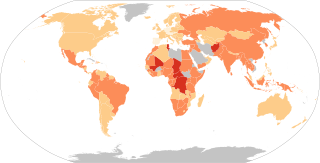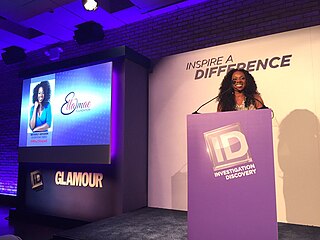The topic of this article may not meet Wikipedia's notability guideline for biographies .(May 2016) |
Lauren Chief Elk (born 1987) is a Native American feminist educator and writer.
The topic of this article may not meet Wikipedia's notability guideline for biographies .(May 2016) |
Lauren Chief Elk (born 1987) is a Native American feminist educator and writer.
Lauren Chief Elk was born in San Jose, California, in 1987. She is Assiniboine and Blackfeet from Fort Belknap, Montana, raised in San Francisco, California. She also lived in other parts of the Bay Area and also later in Oregon. She comes from a family that is in academia. Her mother, teaches at the university Lauren attended.
She has worked at San Francisco City Hall, planned SlutWalk and AIDS Walk, and is a legal assistant. She is the co-founder of Save Wiyabi Project and the Media Coordinator of Anonymous' Operation Thunderbird.
Lauren Chief Elk is also one of the three founding women that began the #GiveYourMoneyToWomen Twitter hashtag on social media, along with professional dominatrices @LadyLuxatrix and @ICONOCLASTIAE.
She was involved with the 2007 De Anza rape investigation, as one of three women soccer players who interrupted the gang rape. [1] She testified against ten members of the De Anza College men's baseball team, but the criminal case was dismissed due to insufficient evidence and difficulties in positively identifying the participants. [2] The victim pursued damages against two alleged participants, losing a civil trial presided over by Santa Clara County Superior Court Judge Aaron Persky.
She co-founded the Save Wiyabi Project in August 2011 with Jessa Rae, which focuses on serving Native American women who have experienced sexual violence and creating solutions in urban and rural environments. The project was created as a social media campaign to assist in the Violence Against Women Act reauthorization with full tribal provisions. [3]
In an interview with As Us Journal, she said that she is motivated by the progress she has seen in Indian Country on VAWA, especially the people from Indian Country in Montana who have been moved to share their stories and experiences with sexual violence and healing. [4]
With this project they started a "All Nations Rising" VDay movement to highlight indigenous women within the One Billion Rising events.
Chief Elk co-founded the Twitter hashtag #GiveYourMoneyToWomen, which encourages men on Twitter to directly give money to women as a way of balancing gender-based income inequality. [5]
Jennifer Schaffer explains, "Women were banding together to demand payment for all the emotional work we do that goes completely unpaid—the exhausting work of being a tolerant, gentle, nurturing, listening woman in our relationships with men, at all times. Women put up with a lot of bullshit, and we have a science-backed term for it: emotional labor. And as with any kind of labor, women are now ready and eager to get paid." [6]
She contributed an article to Salon.com in 2014, another to Truthout in 2014, and has posted half a dozen articles on Model View Culture. [7] [8] [9] She was banned from Twitter in December 2016 and has stated that she will rely on Instagram instead. [10] As of July, 2017, Chief Elk-Young Bear was tweeting under the handle @elle_chiefelk. This account was also suspended because the new account violated the Twitter terms of service prohibiting the creation of new accounts to avoid Twitter bans.

The Rape, Abuse & Incest National Network (RAINN) is an American nonprofit anti-sexual assault organization, the largest in the United States. RAINN operates the National Sexual Assault Hotline, as well as the Department of Defense Safe Helpline, and carries out programs to prevent sexual assault, help survivors, and ensure that perpetrators are brought to justice through victim services, public education, public policy, and consulting services.
Victim blaming occurs when the victim of a crime or any wrongful act is held entirely or partially at fault for the harm that befell them. There is historical and current prejudice against the victims of domestic violence and sex crimes, such as the greater tendency to blame victims of rape than victims of robbery if victims and perpetrators knew each other prior to the commission of the crime.

Rape is a type of sexual assault involving sexual intercourse or other forms of sexual penetration carried out against a person without their consent. The act may be carried out by physical force, coercion, abuse of authority, or against a person who is incapable of giving valid consent, such as one who is unconscious, incapacitated, has an intellectual disability, or is below the legal age of consent. The term rape is sometimes used interchangeably with the term sexual assault.
The 2007 De Anza rape investigation was a police inquiry into allegations of sexual assault of a minor arising from an off-campus party on March 4, 2007. The investigation focused on eight members of the 2007 De Anza College baseball team. The allegations were investigated by the Santa Clara County, California Sheriff's Department, and reviewed by Santa Clara County District Attorney Dolores Carr. On June 4, 2007, Carr stated that no charges would be filed. This decision was questioned by many, and the Office of the California Attorney General Jerry Brown was invited by the prosecutor to perform an independent investigation of the available evidence. May 2, 2008, the Attorney General's office determined that there was insufficient evidence to charge anyone present with a crime.
Corrective rape, also called curative rape, as well as homophobic rape, is a hate crime in which one or more people are raped because of their perceived sexual orientation such as homosexuality or bisexuality. The common intended consequence of the rape, as claimed by the perpetrator, is to turn the person heterosexual.

Beverly Gooden is an African American writer and social activist known for her groundbreaking work in domestic violence, victimology, and women's health, who created the Why I Stayed hashtag (#WhyIStayed) and movement in 2014. Her writing has appeared in The New York Times, the U.S. Office on Women's Health, and NBC's Today.
Slut-shaming is the practice of criticizing people, especially women and girls, who are perceived to violate expectations of behavior and appearance regarding issues related to sexuality. The term is used to reclaim the word slut and empower women and girls to have agency over their own sexuality. Gender-based violence can be a result of slut-shaming primarily affecting women. It may also be used in reference to gay men, who may face disapproval for promiscuous sexual behaviors. Slut-shaming rarely happens to heterosexual men.
Black Twitter is an internet community largely consisting of African-American users on the social network Twitter focused on issues of interest to the black community in the United States. Feminista Jones described it in Salon as "a collective of active, primarily African-American Twitter users who have created a virtual community proving adept at bringing about a wide range of sociopolitical changes." A similar Black Twitter community grew in South Africa in the early 2010s.
Rape in Egypt is a criminal offense with penalties ranging from 15 to 25 year and a lifetime sentence if the rape included abduction. Marital rape is legal. By 2008, the U.N. quoted Egypt's Interior Ministry's figure that 20,000 rapes take place every year, although according to the activist Engy Ghozlan (ECWR), rapes are 10 times higher than the stats given by Interior Ministry, making it 200,000 per year. Mona Eltahawy has also noted the same figure (200,000), and added that this was before the revolution.

Violence against women in India refers to physical or sexual violence committed against a woman, typically by a man. Common forms of violence against women in India include acts such as domestic abuse, sexual assault, and murder. In order to be considered violence against women, the act must be committed solely because the victim is female. Most typically, these acts are committed by men as a result of the long-standing gender inequalities present in the country.
Hashtag activism refers to the use of Twitter's hashtags for Internet activism. The hashtag has become one of the many ways that social media contributes to civic engagement and social movements. The use of the hashtag on social media provides users with an opportunity to share information and opinions about social issues in a way that others (followers) can interact and engage as part of a larger conversation with the potential to create change. The hashtag itself consists of a word or phrase that is connected to a social or political issue, and fosters a place where discourse can occur. Social media, provides an important platform for historically marginalized populations. Through the use of hashtags these groups are able to communicate, mobilize, and advocate for issues less visible to the mainstream.

#YesAllWomen is a Twitter hashtag and social media campaign in which users share examples or stories of misogyny and violence against women. First used in online conversations about misogyny following the 2014 Isla Vista killings, the hashtag was popular in May 2014, and was created partly in response to the Twitter hashtag #NotAllMen. #YesAllWomen reflected a grassroots campaign in which women shared their personal stories about harassment and discrimination. The campaign attempted to raise awareness of sexism that women experience, often from people they know.
The Women Under Siege Project is an independent initiative of the Women's Media Center (WMC). The project documents online and through social media how rape and gender-based violence are used as tools in warfare and genocide. The project uses journalism to investigate and bring to light these issues which impact women throughout the world, but especially in areas of conflict. The director of Women Under Siege, Lauren Wolfe, has said that the first step to challenging rape is to stop victim blaming and to focus on the perpetrators and the cultures that produce them.

#SayHerName is a social movement that seeks to raise awareness for Black women victims of police brutality and anti-Black violence in the United States. The movement's name originally was created by the African American Policy Forum (AAPF). According to research, black women are 17% more likely to be stopped by police and 150% more likely to be killed than their white counterparts. #SayHerName aims to highlight the gender-specific ways in which Black women are disproportionately affected by fatal acts of racial injustice. In an effort to create a large social media presence alongside existing racial justice campaigns, such as #BlackLivesMatter and #BlackGirlsMatter, the African American Policy Forum (AAPF) coined the hashtag #SayHerName in December 2014.
#ShoutYourAbortion is a social media campaign where people share their abortion experiences online without "sadness, shame or regret" for the purpose of "destigmatization, normalization, and putting an end to shame." Tens of thousands of people worldwide have shared their abortion experiences online using the hashtag #ShoutYourAbortion. The Shout Your Abortion campaign was started on September 19, 2015, by American activists Lindy West, Amelia Bonow, and Kimberly Morrison, in response to efforts by the United States House of Representatives to defund Planned Parenthood following the Planned Parenthood 2015 undercover videos controversy. The hashtag has received both positive and negative attention within social media and the mainstream media.
After a sexual assault or rape, victims are often subjected to scrutiny and, in some cases, mistreatment. Victims undergo medical examinations and are interviewed by police. If there is a criminal trial, victims suffer a loss of privacy and their credibility may be challenged. Victims may also become the target of slut-shaming, abuse, social stigmatization, sexual slurs and cyberbullying.
A marry-your-rapist law, marry-the-rapist law, or rape-marriage law is a rule of rape law in a jurisdiction under which a man who commits rape, sexual assault, statutory rape, abduction or other similar act is exonerated if he marries his female victim, or in some jurisdictions at least offers to marry her. The "marry-your-rapist" law is a legal way for the accused to avoid prosecution or punishment.
#MeToo is a social movement and awareness campaign against sexual abuse, sexual harassment, and rape culture, in which people publicize their experiences of sexual abuse or sexual harassment. The phrase "Me Too" was initially used in this context on social media in 2006, on Myspace, by sexual assault survivor and activist Tarana Burke. Harvard University published a case study on Burke, called "Leading with Empathy: Tarana Burke and the Making of the Me Too Movement" (2020). The hashtag #MeToo was used starting in 2017 as a way to draw attention to the magnitude of the problem.
Mariame Kaba is an American activist, grassroots organizer, and educator who advocates for the abolition of the prison industrial complex, including all police. She is the author of We Do This 'Til We Free Us (2021). The Mariame Kaba Papers are held by the Chicago Public Library Special Collections.
The #MeToo movementin Pakistan is modeled after the international #MeToo movement and began in late 2018 in Pakistani society. It has been used as a springboard to stimulate a more inclusive, organic movement, adapted to local settings, and has aimed to reach all sectors, including the lowest rungs of society.